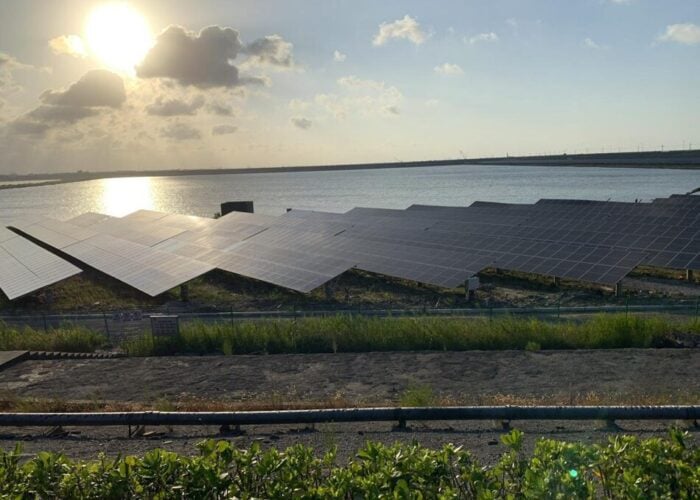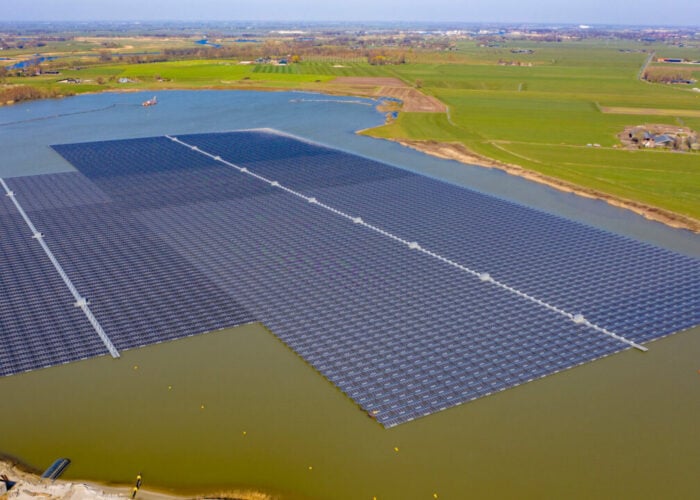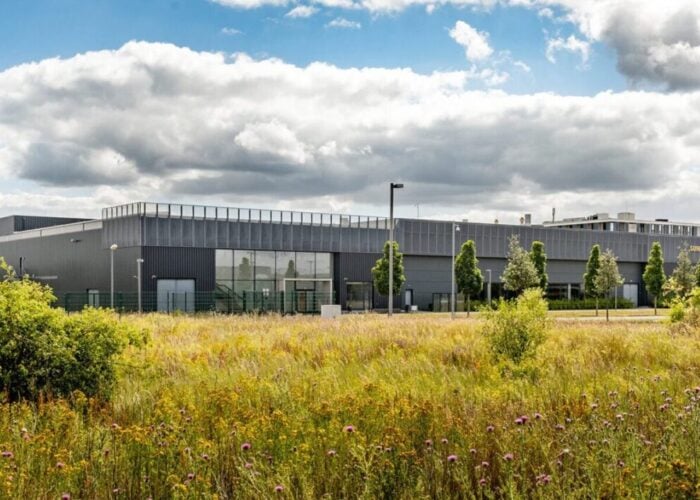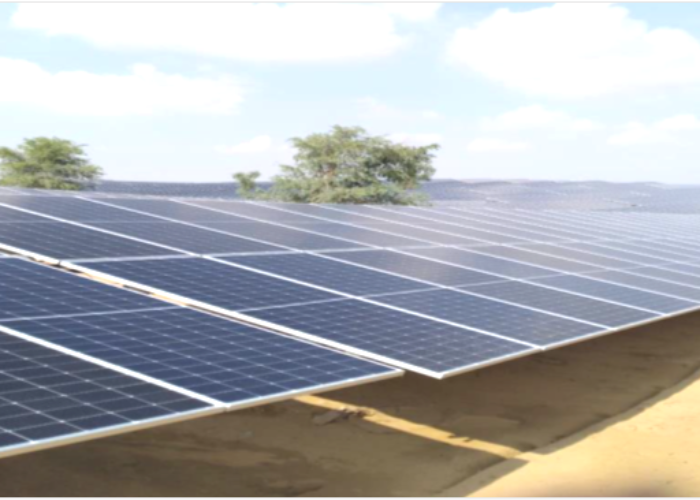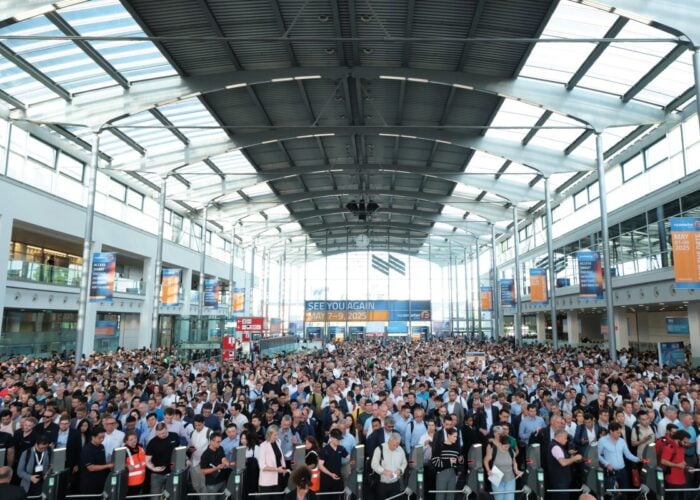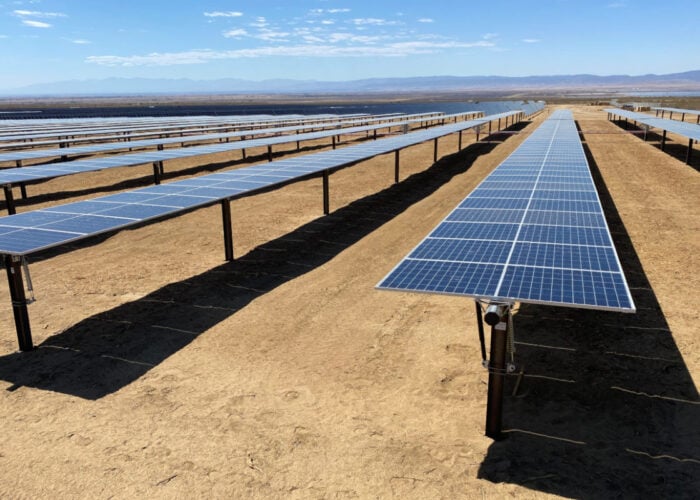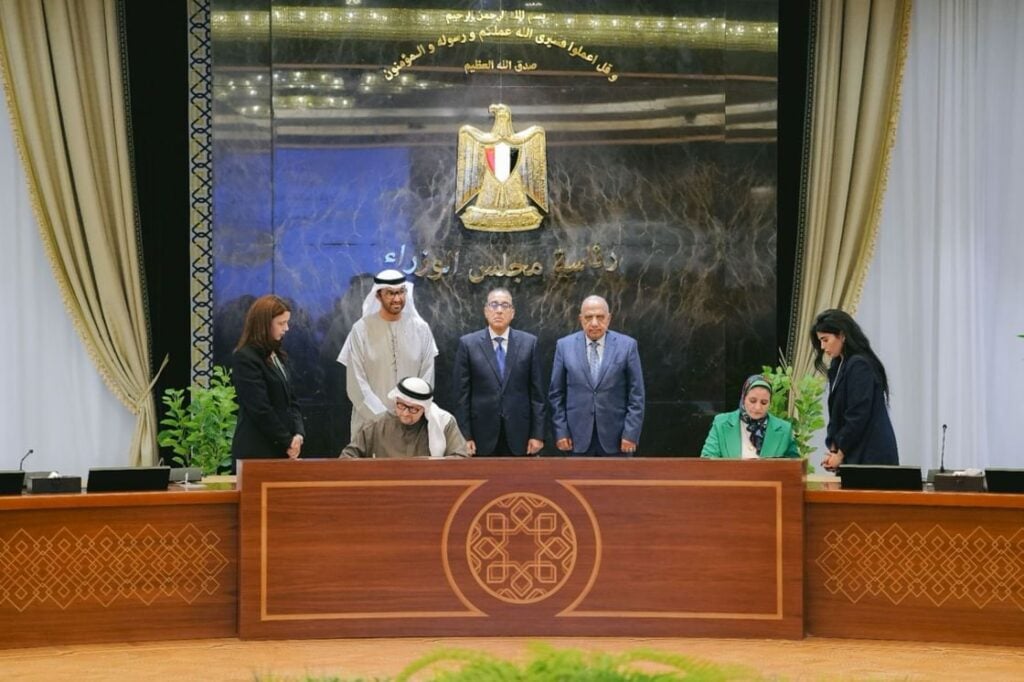
UAE state-owned power developer Masdar has signed a number of memoranda of understanding to develop new renewable power projects in Egypt, including over 6GW of new solar capacity, 4GW of new solar manufacturing capacity and 2GW of new battery manufacturing capacity.
At a signing ceremony in Egypt, attended by Egyptian prime minister Dr Mostafa Madbouly and UAE ambassador to Egypt Mariam Khalifa Al Kaabi, among others, the Egyptian government and Masdar agreed on a plethora of new renewable power projects, headlined by a new 3GW floating PV (FPV) project on Lake Nasser, which will be the largest FPV project in the world upon completion.
Unlock unlimited access for 12 whole months of distinctive global analysis
Photovoltaics International is now included.
- Regular insight and analysis of the industry’s biggest developments
- In-depth interviews with the industry’s leading figures
- Unlimited digital access to the PV Tech Power journal catalogue
- Unlimited digital access to the Photovoltaics International journal catalogue
- Access to more than 1,000 technical papers
- Discounts on Solar Media’s portfolio of events, in-person and virtual
Or continue reading this article for free
The news follows a number of announcements in the FPV sector, with China’s CHN Energy completing work at the world’s largest open sea floating project, which boasts a capacity of 1GW, last week. The same week, India’s Tata Power commissioned the country’s largest FPV project, with a capacity of 126MW.
Masdar also agreed to develop a 2GW solar project in Naga Hammadi, Upper Egypt, and signed memoranda of understanding for both projects with the Future of Egypt for Sustainable Development Authority, a body created by president Abdel Fattah El-Sisi. The authority has largely worked to turn the country’s large desert areas to usable land, most notably for the agricultural sector, and the latest round of deals will see Masdar add new solar capacity elsewhere in the Egyptian landscape.
The company plans to build two solar projects, a 900MW project at the Dakhla Oasis and a 300MW solar plant in Benban, both of which will be equipped with co-located storage projects. These projects will be built in the new UAE-Egypt industrial zone, an area covering 20 square kilometres in eastern Port Said, a port city on Egypt’s northern coast that borders the Suez Canal.
Masdar has also signed two power purchase agreements (PPAs) with Infinity Power, Hassan Allam Utilities and the Egyptian Electricity Transmission Company to acquire 1.2GW of solar capacity, alongside 720MWh of battery storage, although the company did not specify from which projects this power would be acquired.
Expanding manufacturing capacity
Masdar will also look to expand its manufacturing capacity with new factories in Egypt. The company signed a memorandum of understanding with the UAE’s Global South Utilities (GSU) and the Industrial Modernsation Centre (IMC), which operates under the Egyptian Ministry of Trade, to build two factories, one producing solar cells and the other solar modules, both with an annual production capacity of 2GW.
As part of this deal, Masdar will also look to build a 2GW battery manufacturing facility, and “explore” the possibility of building a second battery plant, although the company did not disclose the potential capacity of this facility.
“The growth of this sector is key to achieving the goals of the sustainable development plan, providing the needs of the local market, enhancing national exports, and supporting the national economy,” said Madbouly of the agreements signed, noting that the deals will contribute to Egypt’s Integrated Sustainable Energy Strategy, a plan for renewable power to account for 42% of the country’s energy mix by 2030, compared to just 12% in 2023, according to Ember.
“[The deals] also contribute to the development of clean energy infrastructure, and seek to provide effective solutions for energy storage that meet the needs of the local and regional markets, which contributes to enhancing sustainable development and achieving environmental and economic goals,” added Madbouly.
The deals are Masdar’s latest significant investment in overseas solar, following the Saudi Arabian government’s decision to award the 2GW Al Sadawi solar project to a consortium headed by Masdar earlier this week.

